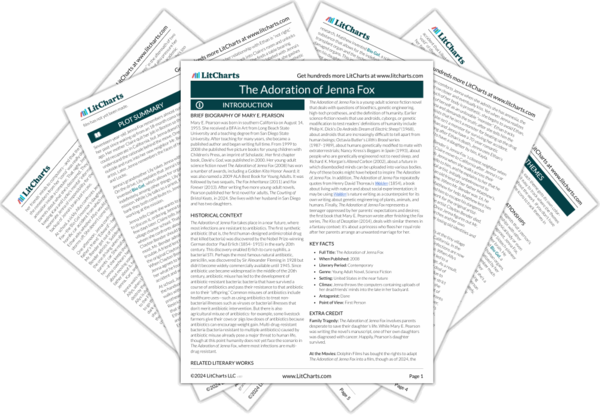Ethan speculates that
Dane goes to the village charter because he got expelled from all the other available schools.
Allys explains that she attends the charter because the fluid schedule makes it easier for her to attend doctor’s appointments—and besides,
Dr. Rae lets her pursue her interest in bioethics. Then she asks why
Jenna chose to attend the school. Jenna, forcing herself to speak, says she didn’t choose it: her
mother chose it for her because she had an accident, she’s still recovering, and she can’t remember anything that matters. Ethan, giving her a gentle, friendly look, tells her that that’s a “load of crap” and then begins a
Walden quotation, which Jenna is able to finish. Jenna decides that Ethan is “not a dickhead at all.”
